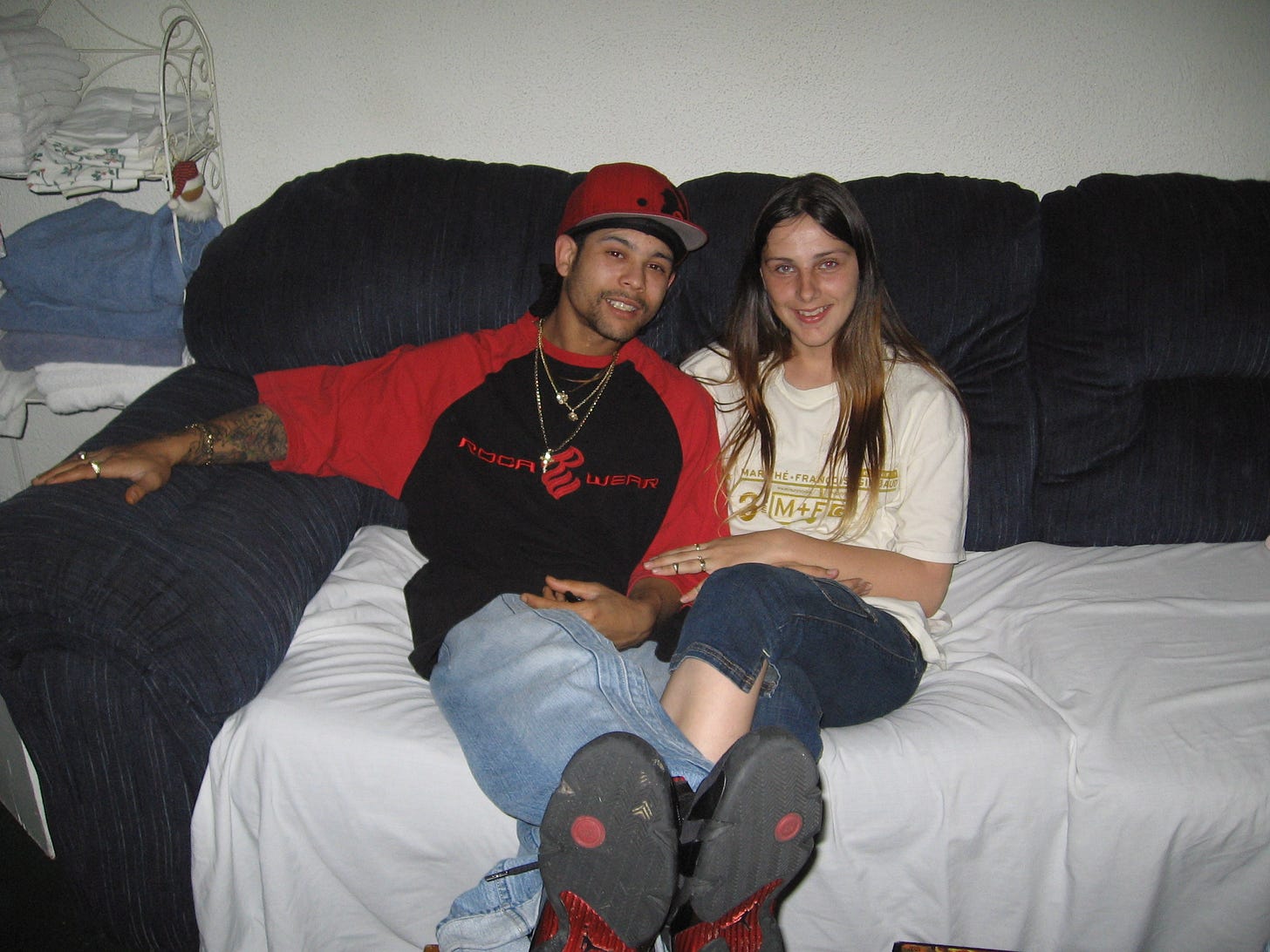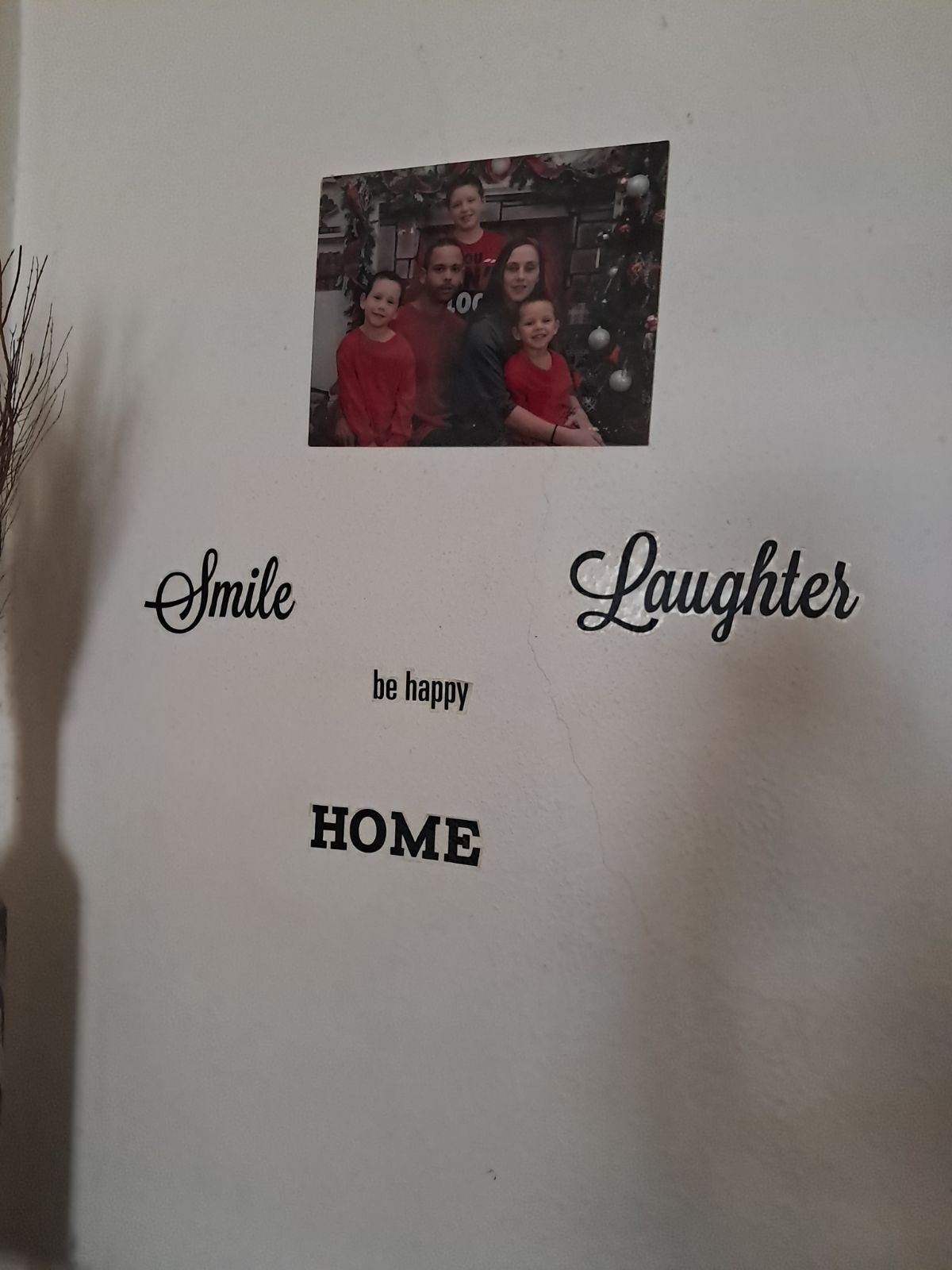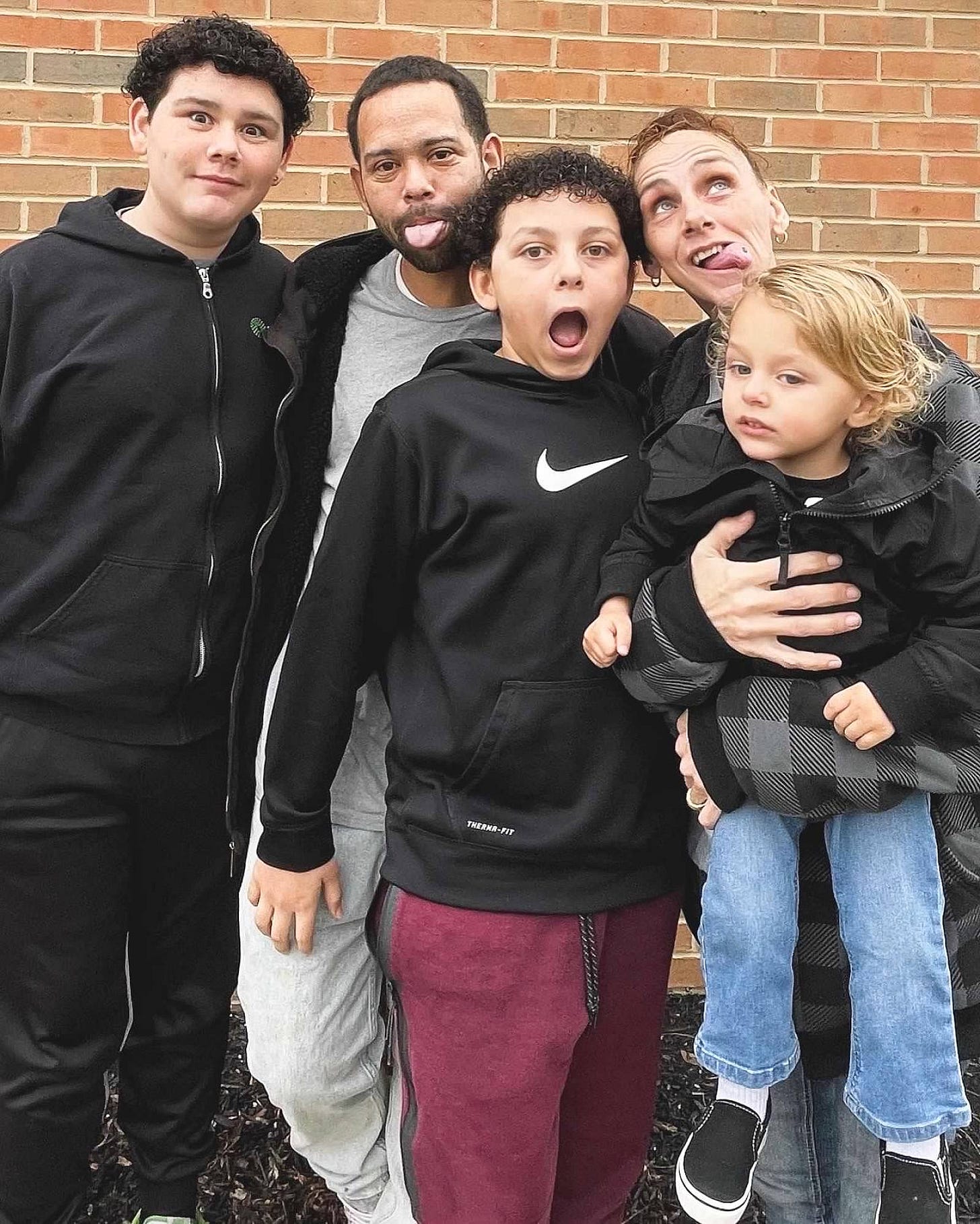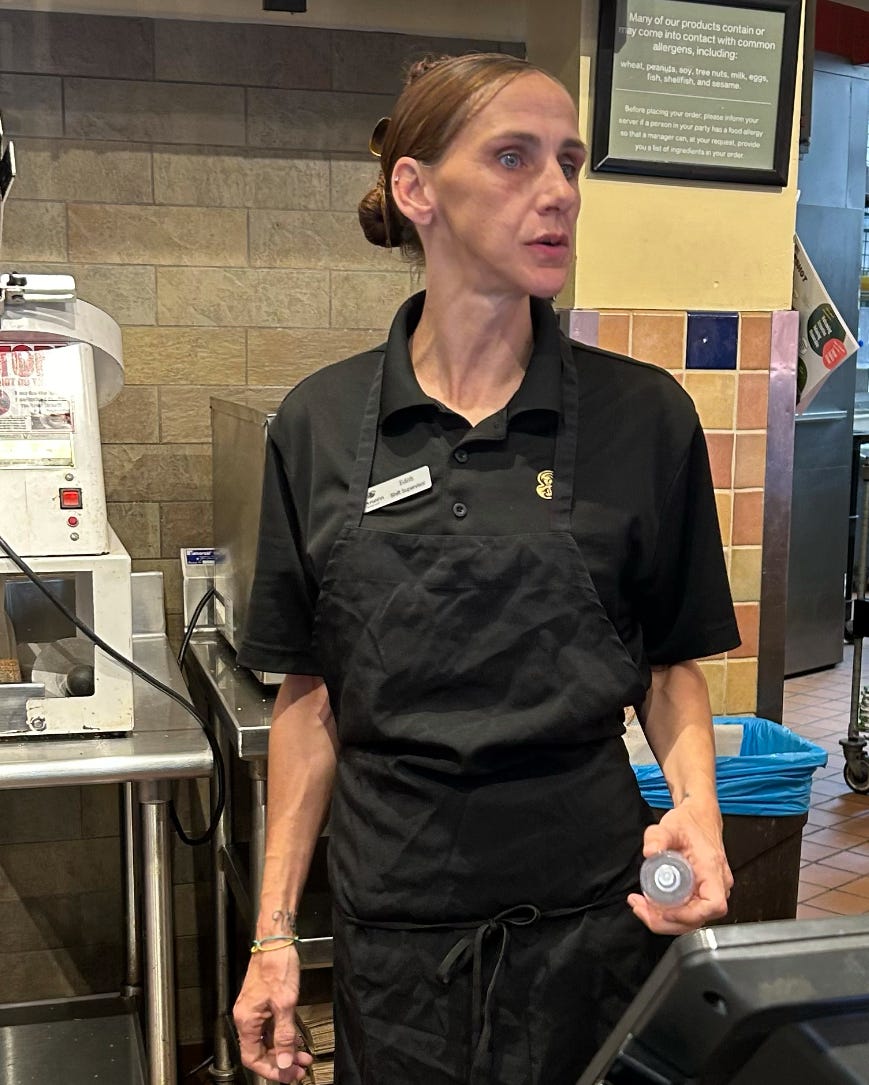Meet the swing state voters who don’t vote
Addiction, eviction and a lifetime of poverty and trauma leaves little room for civic engagement

When I step inside Brandon and Edie’s home for the first time, I notice the decals. Stuck to the wall are words with positive, upbeat associations: Family, Laughter, Smile, Home, Always, Bless, Together. They have pictures of their kids, some stuck right on the wall without frames. Their house is a one-story, vinyl-sided two-bedroom, the porch is covered in Halloween decorations and they post a sign saying “Beware of Dog.” There is a man lurking next to their yard, a “zombie” is what Edie and Brandon call him: one of the people on drugs who have nothing to do during the day but walk around with vacant looks on their faces.
They pay $500 a month for this place. Each month Edie uses the Cash App on her phone - the only formal bank account she has - to withdraw funds and Brandon walks the cash across the street to the landlord, who is also his barber and friend.
I ask: what do you like best about your home?
“That it’s ours,” Brandon said.
Edie agrees. They don’t own it, but this isn’t an own vs. rent distinction.
“It’s ours” means something to someone for a family that’s experienced homelessness.
It means having a place to go.

I reported on Brandon and Edie for a piece that was published this week in the Dayton Daily News. It is part of a larger series I’m working on about Democracy and Care, in partnership with the Kettering Foundation to explore the work of their Dayton Democracy Fellows.
Brandon and Edie live on the East End of Dayton - one of the hardest hit areas of the opioid epidemic. Brandon and Edie explain that they have both stopped using drugs, and they are a year-and-a-half clean, which they are very proud of. They credit their therapist, their support group, and their own determination and love for their kids with making this possible. It took some time and some false starts - and a rock bottom incident that pulled their family apart and put their kids in foster care - before things could improve to where they are now.
Edie is the sole income earner, she holds a regular job now as a shift manager at Panera Bread. This is one of the best jobs she’s ever had, she tells me, speaking glowingly of her coworkers and her willingness to help them out with their side work if they’re moving slowly or just need a hand. Her previous general manager would sometimes call shift manager meetings, and those conversations were the closest thing to a community that Edie has felt part of in her adult life.
Brandon doesn’t have paid work. He has struggled to find a position he could keep for a stretch of time, and they have no reliable child care option. (Until recently, they had no car, but recently they received a donated one.) So he stays home with their three boys, the youngest of whom is 2 years old.
Brandon and Edie are committed to raising their boys in a better situation than they were raised, even though both grew up impoverished. They aren’t married, but plan to be married once they are “settled,” though neither can explain what exactly that means or looks like. They are happy to have their children out of foster care, but also working every day to hang on (“maintainin’'” says Brandon) and have been doing so for most of their lives.

Have you ever voted? I ask. Both shake their heads. They have no space in their life for civic engagement or building a community, and both distrust many of their neighbors and relatives who have often judged them and undermined them when what they needed was unconditional love and support. And voting? Why would they even consider doing that?
“I’m not into politics,” Edie tells me.
Brandon says he doesn’t care who wins, “it won’t affect me at all.”
The only people who care about the election, Brandon tells me, are the rich people. They’re the ones whose decisions matter.
I point out to them that their votes - in a state like Ohio which historically has been considered a swing state - actually matter a great deal. Even more so than my own vote in Maryland. Voting is the great equalizer, rich and poor all get the same say.
They both shake their heads again. “I’m just not into politics,” Edie reiterates, as if politics were a hobby or sports team that one opted into.
There is one issue Edie has an opinion on: abortion. She’s seen the ads for candidates who don’t support abortion rights and feels that is wrong to control a woman’s body, “especially in cases like rape,” she says.
Abortion rights do figure prominently into Ohio’s election this fall. Does that change their mind about voting? No.
What about a ballot being mailed to their house to fill out? Does that make it easier? Doesn’t matter.
What about when they wake up on November 6th, will they have an opinion one way or another about who is President? Not really.
For Brandon and Edie, a lifetime of trauma and distress has made distancing themselves entirely from the political process a seem to be a better option than seeking to engage with it. “Politics” is for someone else. The concerns they face everyday are really about what is going on that day. Even though many of the policies that will be decided in the state and national elections will directly affect them - from minimum wage increases to expanded Medicaid benefits to infrastructure investments like the Head Start building opening in East Dayton, something that “might happen someday” does not figure into their daily calculations.
I wonder, as someone who writes often about policy and how it affects people, why it is that people don’t know just how much government intervention matters. Maybe this is part of our larger failure as a country. “Our willingness, and sometimes delight, in shaming people who need support most has meant that those who stand to benefit cannot see themselves as part of the process,” said Elizabeth Gish. “Our goal is not to tell people, ‘Oh hey you should get more involved,’ but rather to build accessible on-ramps to participation and engagement that makes sense to them and where they can experience the benefits of engagement first hand.”
I tell Brandon and Edie I am going to share their story. They seem surprised people would care about it. Neither seems to understand why I keep asking about voting. There are more pressing things going on in their lives. “Besides it won’t affect me,” Brandon tells me again.

The next day I come to Panera Bread where Edie works. She is actively engaging with her coworkers, one of whom tells us a joke at the register and they all start laughing.
What if she knew that voting could change the lives of her coworkers? I had asked Edie. Would that make it worth it, or give her a stake in the outcome?
Edie doesn’t answer right away. This is the aspect of her life that gives her the most engagement with a positive group of people. This job has allowed her to shine, even as other areas have been a struggle.
But her answer hasn’t changed. She tells me again, for what must be the zillionth time that I’m asking her only to get the same answer: “I’m just not into politics.”
This has been excerpted and adapted from this story published in the Dayton Daily News, in print and online.
Read my previous interview with Elizabeth Gish from the Kettering Foundation here.
—> If you’re interested in making a donation to support Brandon and Edie in raising their boys, you can venmo [at] edie937 or cashapp [at] ediephilbeck7 with any amount.
—> If you are interested in supporting more reporting like this, please consider becoming a paid subscriber to this newsletter, or sharing with others who might be interested.




Great reporting! Thanks for treating this with such care. ♥️
Thank you for sharing this. I think it is hard for people who haven't been in this situation to understand how disconnected so many are from our political systems. This did a great job of capturing how much work we still have to do to make democracy actually inclusive.